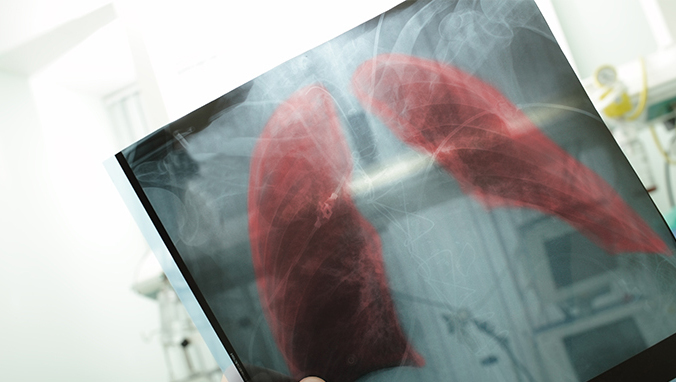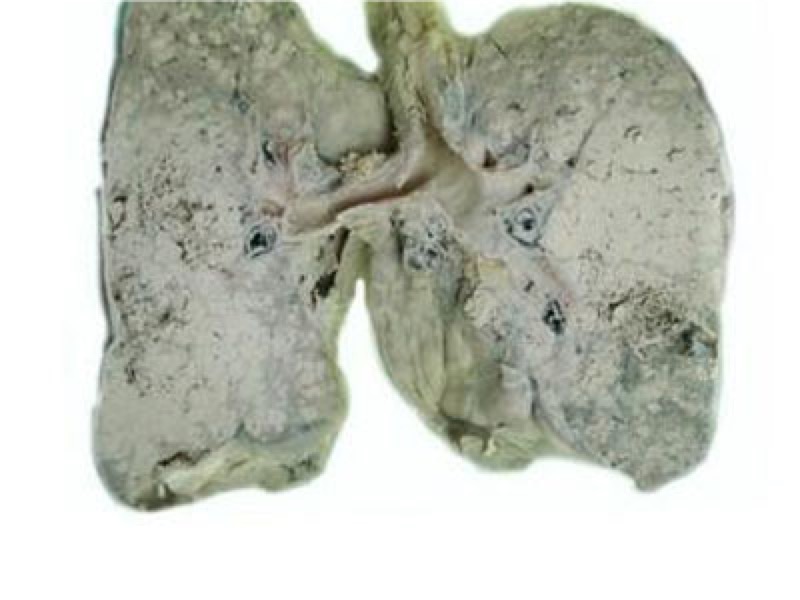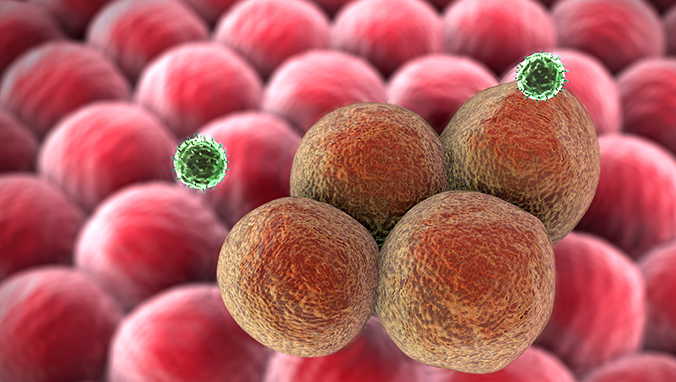Lung cancer reaction after taking Chinese medicine
It is believed that the problem of lung cancer medication is a major problem in the treatment of many lung cancer patients, and many problems need to be considered and solved. Side effects of lung cancer medication are inevitable, but there are many reasons for these side effects, and slowly accumulating some medication experience through clinical practice can avoid or reduce side effects.

Chemotherapy plays a very important role in the treatment of lung cancer. Many patients will treat lung cancer through this important way of chemotherapy. So, does lung cancer chemotherapy have any side effects? No, lung cancer chemotherapy mainly kills cancer cells in large quantities, but large doses of chemicals also cause great damage to normal cells in the human body.
Hair follicle damage
Some lung cancer chemotherapy drugs damage hair follicles, and hair loss will occur after applying lung cancer chemotherapy drugs. The degree of hair loss is usually related to the concentration and dose of the drug related. There is no need to worry too much about hair loss, because after the patient stops taking the drug, the hair will grow back, and the skin''s erythema, rash and pigmentation will improve or disappear.
Gastrointestinal tract injury
Chemotherapy has a killing effect on normal gastrointestinal cells, which in turn leads to a strong gastrointestinal reaction in the patient, manifested as oral Dryness, loss of appetite, nausea, vomiting, and sometimes oral mucositis or ulcers. Constipation, paralytic intestinal obstruction, diarrhea, gastrointestinal bleeding and abdominal pain can also be seen. These side effects will reduce the patient''s own anti-tumor immunity and lead to further deterioration of the disease. Therefore, patients should pay attention to keep up with the diet and nutrition during treatment, and should strengthen selenium supplementation. Selenium products have a good auxiliary effect on radiotherapy and chemotherapy. Targetedly improve immunity, improve the side effects of radiotherapy and chemotherapy, stabilize white blood cells, and repair patients'' gastrointestinal tract cells, ease digestive tract reactions, and the prognosis is ideal.
Liver injury
Lung cancer chemotherapeutic drugs can damage liver cells to varying degrees, with increased alanine aminotransferase, increased bilirubin, hepatomegaly, liver Pain, jaundice, etc., the liver reaction caused can be acute and transient liver damage, or chronic liver damage due to long-term use of lung cancer chemotherapy drugs, such as fibrosis, steatosis, granuloma formation, eosinophil infiltration, etc. . Therefore, before and during the use of lung cancer chemotherapy drugs, it is necessary to check liver function, find problems in time, solve them in time, and stop lung cancer chemotherapy when necessary.
Cardiovascular injury
Some lung cancer chemotherapy drugs have a toxic effect on the cardiovascular system, which can be clinically manifested as arrhythmia, heart failure, cardiomyopathy syndrome , The ECG is abnormal. Severe heart failure can occur. Therefore, the electrocardiogram should be checked before and during the use of lung cancer chemotherapy drugs.
Bone marrow suppression
Most lung cancer chemotherapy drugs have different levels of bone marrow suppression. In the early stage of bone marrow suppression, white blood cells, especially granulocytopenia, can be manifested. In severe cases, platelets, red blood cells, and hemoglobin can be reduced. At the same time, patients can also have fatigue, decreased resistance, easy infection, fever, and bleeding. Before each lung cancer chemotherapy, blood test should be done. If the number of white blood cells is lower than (2.5 to 3) × 109/liter and platelets (50 to 80) × 109/liter, lung cancer chemotherapy should be temporarily stopped, follow the doctor''s The doctor ordered the use of drugs that raise blood cells. Lung cancer chemotherapy drugs are generally immunosuppressive drugs, which have varying degrees of inhibitory effects on the body''s immune function. When the immune function is low, the tumor is not easy to be controlled, but the process of recurrence or metastasis is accelerated.
Lung injury and kidney injury
Some lung cancer chemotherapy drugs can cause peripheral neuritis, and a few lung cancer chemotherapy drugs can cause acute chemical pneumonia and chronic lung fiber The clinical manifestations may be fever, dry cough, and shortness of breath. Most patients have an acute onset, accompanied by granulocytosis, and even respiratory failure. The lungs should be checked regularly during the use of lung cancer chemotherapy drugs, and follow-up should be paid attention to after the drug is stopped. Once a toxic reaction to the lung is found, chemotherapy of the lung cancer is stopped and hormone therapy is used. Some lung cancer chemotherapeutic drugs can cause kidney damage, mainly manifested as acute necrosis, degeneration, interstitial edema, and tubular dilation of renal tubular epithelial cells. In severe cases, renal failure occurs. Patients may have proteinuria, oliguria or anuria, and some may have hematuria, edema, and abnormal urine tests. It should be checked regularly before and during the use of lung cancer chemotherapy drugs, problems are found, and timely treatment.
Adverse reactions and response of targeted drugs
The choice of targeted drugs is mostly based on the mutation type of carcinogenic sites in patients, and is currently used in clinical applications Broader targeted therapeutic drugs are mainly divided into small molecule targeted drugs and monoclonal antibodies. Among them, small molecule targeted drugs are usually signal transduction inhibitors, which can specifically block the signal transduction pathways necessary for tumor growth and proliferation, so as to achieve the purpose of treatment. The target of small molecule targeted drugs is clear, but it does not mean that no clinical adverse reactions will occur. With the widespread clinical application, the adverse reactions of such drugs, such as diarrhea, proteinuria, hypertension, acne-like rash, and heart disease, are well known.
Related Articles

- Early symptoms of lung cancer
- 2020-12-17

- Early Signs of Bladder Cancer
- What are the early symptoms of bladder cancer?
- 2020-12-17

- Is metastatic carcinoma easy to metastasize
- Once the cancer has metastasized, it will be very difficult to cure, because many people have lost their lives because of the emergence of cancer, so most people think that cancer is an un
- 2020-08-02

- What does microinfiltrating adenocarcinoma mean?
- Microinfiltrating adenocarcinoma is a type of lung cancer. The reason why it is called microinfiltration means that there is less infiltration around it, which means that it is in the early
- 2020-08-01

- How long can non-small cell adenocarcinoma live
- Adenocarcinoma is one of the most common malignant tumors in the world. Non-small cell adenocarcinoma accounts for about 80% of all adenocarcinomas. About 75% of patients are in the middle
- 2020-08-01

- Hand cancer
- Finger cancer generally refers to the appearance of skin cancer, which is characterized by local cauliflower-like skin and easy bleeding. Finger skin cancer is mostly a malignant tumor that
- 2020-08-01
